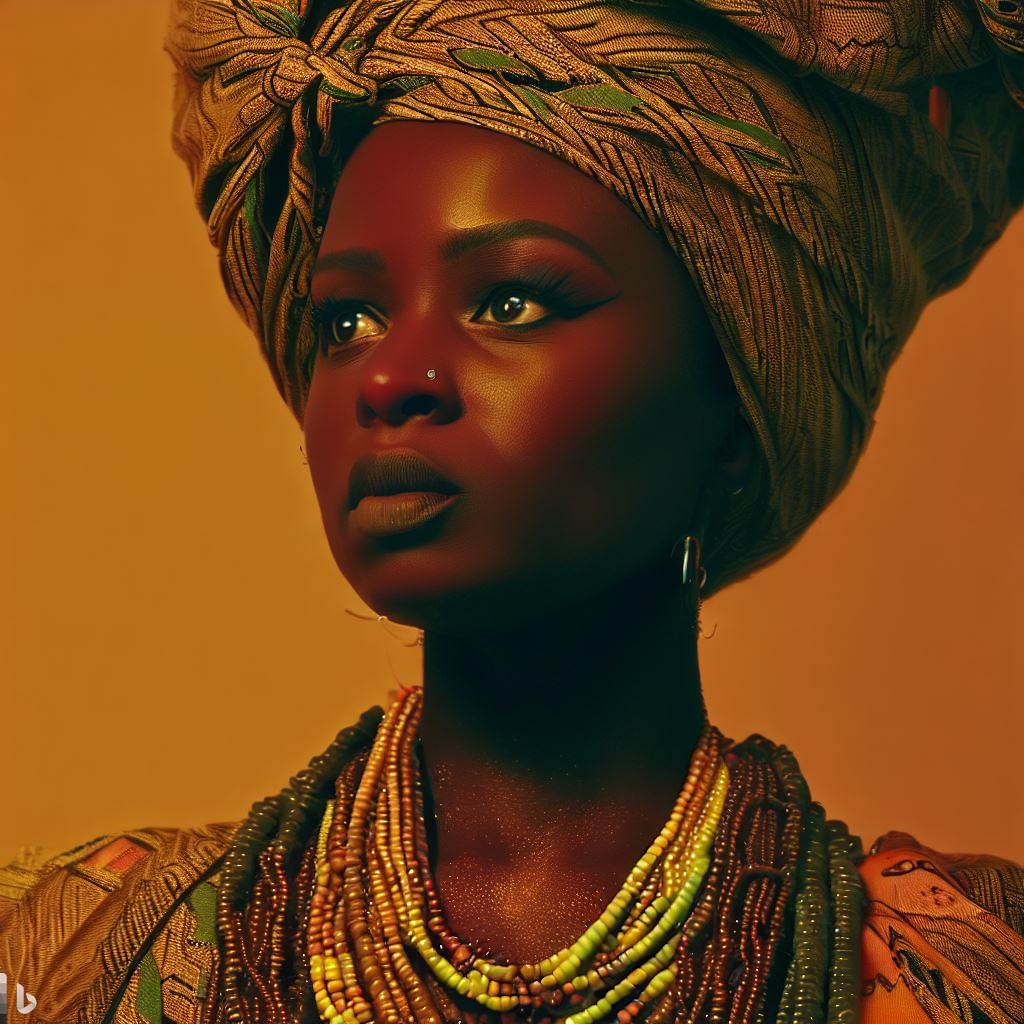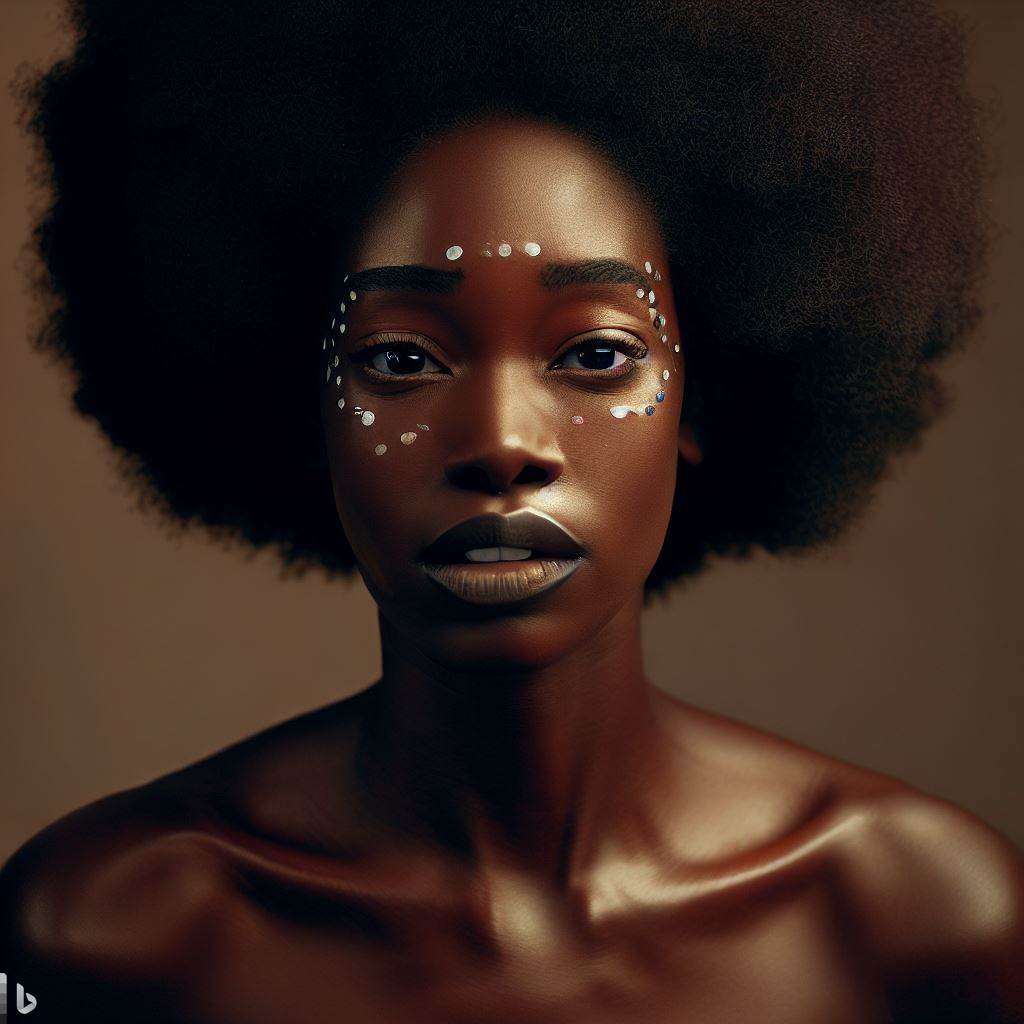Introduction
The enchanting rhythms and soulful melodies of Afrobeat have captivated global music lovers. Afrobeat, originating in Nigeria, seamlessly blends traditional African sounds with jazz, funk, and highlife music.
It emerged as a musical powerhouse in the 1960s and has significantly influenced Nigerian songwriting, pushing it to unprecedented levels of creativity and expression.
Nigerian songwriters have wholeheartedly embraced Afrobeat’s innovative spirit, using it as a conduit to infuse their music with traditional folk tales and rich cultural experiences.
The genre’s energetic beats and pulsating rhythms have provided a vibrant canvas for Nigerian songwriters to narrate stories, convey emotions, and tackle pertinent social and political issues.
One pivotal impact of Afrobeat on Nigerian songwriting is its emphasis on lyrical depth and social commentary.
Nigerian musicians have adopted this element of Afrobeat, leveraging their songs to shed light on societal injustices and engage in crucial conversations.
The influence of Afrobeat has spurred Nigerian songwriters to craft poignant lyrics that resonate with global audiences.
Furthermore, Afrobeat’s incorporation of diverse musical elements has broadened the sonic horizons for Nigerian songwriters.
By blending traditional instruments like the talking drum and shekere with contemporary sounds such as hip-hop and electronic music, Afrobeat has expanded the realm of possibilities within Nigerian songwriting.
This genre fusion has given rise to a unique and dynamic musical landscape, perpetually evolving and pushing creative boundaries.
Basically, Afrobeat’s impact on Nigerian songwriting has been profound, transforming the narrative and emotional depth of music.
The fusion of traditional African sounds with modern influences has catalyzed the growth of a vibrant music scene in Nigeria.
As Afrobeat continues its evolution, it promises to inspire future generations of Nigerian songwriters to explore new frontiers and elevate their craft even further.
Historical Background of Afrobeat
Afrobeat, originating in 1960s Nigeria, blends West African music with jazz, funk, and highlife, primarily developed by Fela Kuti.
Musician and political activist Fela Kuti earned the title “father of Afrobeat” by infusing his music with potent political messages.
His music criticized the corrupt Nigerian government and championed social justice, gaining international popularity in the 1970s.
Key figures in Afrobeat’s development include Tony Allen, Fela Kuti’s drummer, and his band Africa ’70.
Nigeria’s political and social context, marked by military rule, corruption, and injustices, heavily influenced Afrobeat’s emergence.
Fela Kuti’s music became a voice for the oppressed and a symbol of resistance against the government.
Afrobeat fuses different genres and powerful lyrics, combining African rhythms, Yoruba chants, jazz, and funk improvisation.
This fusion contributes to Afrobeat’s distinctive style, which continues to evolve.
Afrobeat’s impact extends beyond Nigeria, challenging traditional music boundaries and inspiring musicians worldwide.
Its political and social messages resonate with those seeking change and justice.
Contemporary artists like Burna Boy and WizKid carry on Afrobeat’s legacy, adding their twists.
Afrobeat’s evolution reflects the ongoing struggle for change in Nigeria and worldwide, amplifying voices and inspiring justice movements.
In fact, Afrobeat’s history reveals its origins, key figures, and its profound impact on music globally.
Its fusion of genres and powerful messages contribute to its ever-evolving, influential nature.
Read: A Guide to Copyright Laws for Nigerian Songwriters
Characteristics of Afrobeat Music
Explore the unique elements of Afrobeat’s sound, including the fusion of Nigerian rhythms with elements of jazz, funk, and highlife
- Afrobeat music is characterized by its infectious rhythms which are heavily influenced by Nigerian traditional music.
- The fusion of Nigerian rhythms with elements of jazz, funk, and highlife gives Afrobeat its distinctive sound.
- Nigerian rhythms such as the afro-cuban clave, the agidigbo, and the talking drum are incorporated into Afrobeat music.
- Jazz elements like complex improvisation and syncopation are also present in Afrobeat, adding depth and complexity to the music.
- Afrobeat features the use of horns, often played in a call-and-response style, which adds a dynamic and powerful layer to the sound.
- The incorporation of funk elements, such as heavy basslines and rhythmic guitar patterns, gives Afrobeat its groovy and danceable quality.
- Highlife, a genre of music popular in Nigeria, also influences Afrobeat, contributing to its melodic and upbeat nature.
- The unique fusion of these elements creates a rich and vibrant sound that is instantly recognizable as Afrobeat.
Discuss the political and social messages conveyed through Afrobeat lyrics
- Afrobeat is known for its socially conscious and politically charged lyrics that address various issues.
- Fela Kuti, one of the pioneers of Afrobeat, used his music as a medium to criticize corruption, oppression, and social injustice.
- Afrobeat lyrics often discuss topics such as poverty, inequality, government corruption, and human rights violations.
- The lyrics serve as a powerful tool to raise awareness and provoke listeners to question the status quo.
- Afrobeat artists aim to inspire social change and empower their communities through their music.
- The lyrics also celebrate African identity, culture, and heritage, promoting pride and unity among Africans worldwide.
- Afrobeat music has become a platform for artists to voice their opinions, advocate for justice, and fight against oppression.
- The powerful combination of the music’s energetic rhythms and poignant lyrics makes Afrobeat a potent vehicle for social and political commentary.
Analyze the influence of Afrobeat on other music genres worldwide
- Afrobeat’s influence can be seen in various music genres globally, transcending borders and cultural boundaries.
- Many contemporary artists have incorporated elements of Afrobeat into their music, creating a fusion of styles.
- The groovy rhythms and infectious melodies of Afrobeat have influenced genres like hip-hop, reggae, and pop music.
- Artists like Wizkid and Burna Boy have brought Afrobeat to the mainstream, gaining international recognition and success.
- Afrobeat’s contribution to the music scene extends beyond Nigeria, inspiring artists from different parts of the world.
- The fusion of Afrobeat with other genres creates a unique sound that allows for cultural exchange and creative exploration.
- Afrobeat’s influence can be heard in the music of artists such as Beyoncé, Drake, and Major Lazer, among others.
- The global popularity of Afrobeat showcases its impact and the ability of music to transcend cultural barriers.
Essentially, Afrobeat music’s unique elements, socially conscious lyrics, and global influence make it a genre that has evolved and left a lasting impact on the music industry.
The fusion of Nigerian rhythms with jazz, funk, and highlife elements creates a distinct sound that is both energetic and meaningful.
Afrobeat’s powerful lyrics address social and political issues, acting as a catalyst for change. Its influence extends beyond its roots, inspiring artists from various genres and cultures worldwide.
Afrobeat continues to evolve, preserving its rich heritage while embracing new musical influences.
Read: Income Potential for DJs in Nigeria: A Financial Overview
Evolution of Nigerian Songwriting
Traditional Nigerian Songwriting Techniques
Before Afrobeat’s emergence, Nigerian songwriting techniques relied on cultural heritage and storytelling, forming their traditional roots.
These techniques emphasized rhythmic patterns, call-and-response vocals, and the use of traditional instruments.
A key aspect of traditional Nigerian songwriting was the inclusion of proverbs and folk tales.
These elements added depth and meaning to the lyrics, creating a sense of connection to the ancestral roots and conveying important cultural values.
Songwriters in Nigeria commonly crafted songs in local languages, highlighting the nation’s abundant linguistic diversity.
The lyrics revolved around themes such as love, spirituality, societal issues, and historical events. The melodies were melodious and reflective of the community’s musical traditions.
Shifts and Innovations brought about by Afrobeat Influences
With the rise of Afrobeat in the 1970s, Nigerian songwriting underwent a significant transformation. Afrobeat, pioneered by Fela Kuti, fused traditional Nigerian rhythms with elements of Western jazz, funk, and highlife music.
One of the notable shifts brought about by Afrobeat was the incorporation of political and social commentary into the lyrics.
Fela Kuti’s music challenged the Nigerian government and promoted activism, inspiring a new generation of musicians to address pressing issues through their songs.
Afrobeat also introduced longer and more intricate instrumental sections, allowing musicians to showcase their skills.
This departure from traditional song structures provided more room for improvisation and experimentation, resulting in dynamic and energetic performances.
Integration of Afrobeat Elements into Contemporary Nigerian Music
The influence of Afrobeat on contemporary Nigerian music can be seen in various genres such as Afrobeats, Afropop, and Afro-fusion.
Artists like Burna Boy, Wizkid, and Tiwa Savage have embraced Afrobeat elements, incorporating them into their songs.
Contemporary Nigerian songwriters continue to draw inspiration from the Afrobeat movement, combining catchy melodies, vibrant rhythms, and socially conscious lyrics.
This integration has resulted in a distinct sound that blends traditional African music with modern influences, appealing to both local and international audiences.
Furthermore, the rise of digital technology has enabled Nigerian songwriters to reach a wider audience and experiment with different sounds.
The accessibility of music production software and online platforms has democratized the music industry, allowing emerging artists to showcase their talent and creativity.
In essence, the impact of Afrobeat on Nigerian songwriting has been profound. It has revitalized traditional techniques, brought about innovation, and fostered the integration of Afrobeat elements into contemporary music.
The evolution of Nigerian songwriting continues to shape the country’s musical landscape, making it a global powerhouse in the industry.
Read: How to Break into Songwriting in Nigeria Today

Nigerian Artists Who Shaped Afrobeat Songwriting
Profile key Nigerian artists who contributed to the evolution of Afrobeat songwriting
- Fela Kuti: Known as the pioneer of Afrobeat, Fela Kuti’s songwriting revolutionized Nigerian music. His politically charged lyrics spoke against oppression and corruption.
- Tony Allen: As Fela Kuti’s drummer, Tony Allen’s rhythmic style greatly influenced Afrobeat songwriting. His inventive beats added depth and complexity to the genre.
- King Sunny Ade: With his unique fusion of traditional Yoruba music and Western influences, Sunny Ade’s songwriting incorporated traditional folklore and social commentary.
- Orlando Julius: Orlando Julius introduced Afrobeat to the international stage. His fusion of Afrobeat with jazz and funk gave his songwriting a global appeal.
Highlight their lyrical styles and contributions to the genre
- Fela Kuti’s lyrical style was characterized by boldness and fearlessness. He fearlessly addressed political issues and advocated for social justice.
- Tony Allen’s contributions to Afrobeat songwriting can be seen in his intricate drum patterns and polyrhythms. His rhythms became the backbone of the genre.
- King Sunny Ade’s songwriting style combined poetic storytelling with social and political commentary. His lyrical depth attracted a wide audience.
- Orlando Julius introduced English lyrics to Afrobeat, making it more accessible to international audiences. His playful and energetic style captivated listeners.
Explore the impact of their work on the larger Nigerian music scene
- Fela Kuti’s Afrobeat revolutionized Nigerian music by challenging the status quo and addressing societal issues. His influence can still be seen in contemporary Nigerian musicians.
- Tony Allen’s rhythmic innovations influenced not only Afrobeat songwriting but also various genres in the Nigerian music scene. His contributions are a cornerstone in Nigerian music history.
- King Sunny Ade’s incorporation of traditional folklore and social commentary paved the way for future Nigerian artists to embrace their cultural roots in songwriting.
- Orlando Julius’s international success demonstrated the global impact of Afrobeat. His fusion of genres opened doors for Nigerian artists to explore new musical possibilities.
In short, Nigerian artists have played a crucial role in the evolution of Afrobeat songwriting.
With their unique styles and contributions, they have shaped the genre, influenced the larger Nigerian music scene, and left a lasting impact on the world stage.
These artists have not only transformed the way Nigerian music is perceived but have also inspired future generations to keep pushing boundaries in their songwriting.
Afrobeat’s rich legacy owes much to the creativity and vision of these Nigerian artists.
Read: Balancing Tradition & Modern Beats: Nigerian DJ Challenges
Global Recognition and Influence
Worldwide Recognition of Afrobeat and Its Impact on the International Music Industry
- Afrobeat, with its infectious rhythms and captivating melodies, has gained global recognition.
- Artists and music producers from all over the world have been influenced by Afrobeat.
- The international music industry has embraced Afrobeat, leading to collaborations and cross-genre experimentation.
- The fusion of Afrobeat with other musical styles has expanded the genre’s reach and appeal.
- Afrobeat’s impact on the international music industry has paved the way for Nigerian artists to achieve recognition on a global scale.
- Through Afrobeat, Nigeria’s vibrant music scene has become a powerful force in the global music landscape.
- The popularity of Afrobeat has also brought attention to Nigerian music traditions and cultural heritage.
- Afrobeat’s incorporation of political and social commentary has resonated with audiences worldwide.
- Artists like Fela Kuti, the pioneer of Afrobeat, have become icons, inspiring musicians worldwide.
- Afrobeat’s success has influenced music labels to actively seek out Nigerian talent and invest in the development of the genre.
Influence of Afrobeat on Contemporary Artists Outside of Nigeria
- Afrobeat has sparked a global movement and inspired contemporary artists in various genres.
- International artists, such as Beyoncé and Drake, have incorporated Afrobeat elements into their music.
- Afrobeat’s fusion with hip hop, R&B, and pop has created a distinct sound embraced by artists worldwide.
- Contemporary artists, both in Africa and beyond, are inspired by Afrobeat’s messages of social justice and activism.
- Afrobeat’s influence can be heard in the music of artists like Burna Boy, Wizkid, and Davido.
- Collaborations between Nigerian artists and international musicians have resulted in groundbreaking hits.
- Afrobeat’s influence on contemporary artists contributes to the genre’s continued evolution and relevance.
- The incorporation of Afrobeat elements into diverse musical styles has revolutionized the global music scene.
- Contemporary artists are drawn to Afrobeat’s vibrant energy, infectious rhythms, and rich cultural heritage.
- Afrobeat’s influence has enabled Nigerian artists to break barriers and achieve international success.
Afrobeat’s Contribution to Cultural Exchange and Identity
- Afrobeat’s global recognition has facilitated cultural exchange and dialogue between different nations.
- The genre serves as a representation of Nigerian cultural identity and heritage on the global stage.
- Afrobeat’s fusion with other musical styles has created a platform for cross-cultural collaboration.
- Nigerian artists have shared their unique perspectives, experiences, and traditions through Afrobeat.
- Afrobeat’s popularity has encouraged cultural appreciation, breaking down stereotypes and fostering unity.
- The genre’s incorporation of traditional Nigerian instruments and rhythms preserves cultural traditions.
- Afrobeat’s global influence has sparked interest in Nigerian culture and tourism.
- Through Afrobeat, cultural barriers are transcended, promoting understanding and empathy among diverse communities.
- Afrobeat’s ability to promote cultural exchange and identity strengthens Nigeria’s position in the global arena.
- Afrobeat’s messages of resilience, empowerment, and pride connect people from different backgrounds and cultures.
In a nutshell, Afrobeat’s worldwide recognition and influence have significantly impacted the international music industry.
The genre’s fusion of infectious rhythms, powerful social commentary, and cultural heritage have captivated audiences and inspired countless artists worldwide.
Afrobeat’s ability to transcend borders, foster cultural exchange, and promote Nigerian identity has solidified its place as a groundbreaking and influential genre in the global music landscape.
Conclusion
In this blog post, we have discussed the impact of Afrobeat on Nigerian songwriting. Afrobeat has had a lasting impact on Nigerian songwriting, revolutionizing the music industry.
Afrobeat has had a profound impact on Nigerian songwriting, leading to a more diverse and experimental sound. Artists have incorporated elements of hip hop, funk, and jazz, and have explored new ways to tell stories and express themselves.
As a result, Nigerian music is more vibrant and exciting than ever before.
Here are some of the ways in which Afrobeat has influenced Nigerian songwriting:
- It has led to a more syncopated and rhythmic sound.
- It has encouraged artists to experiment with different genres and styles.
- It has given artists a platform to express their social and political views.
- It has helped to create a more unified Nigerian music scene.
The impact of Afrobeat on Nigerian songwriting is undeniable. It has helped to create a more diverse, experimental, and exciting sound that is resonating with audiences around the world.
We encourage readers to explore Afrobeat artists and songs to appreciate its significance and cultural richness.




